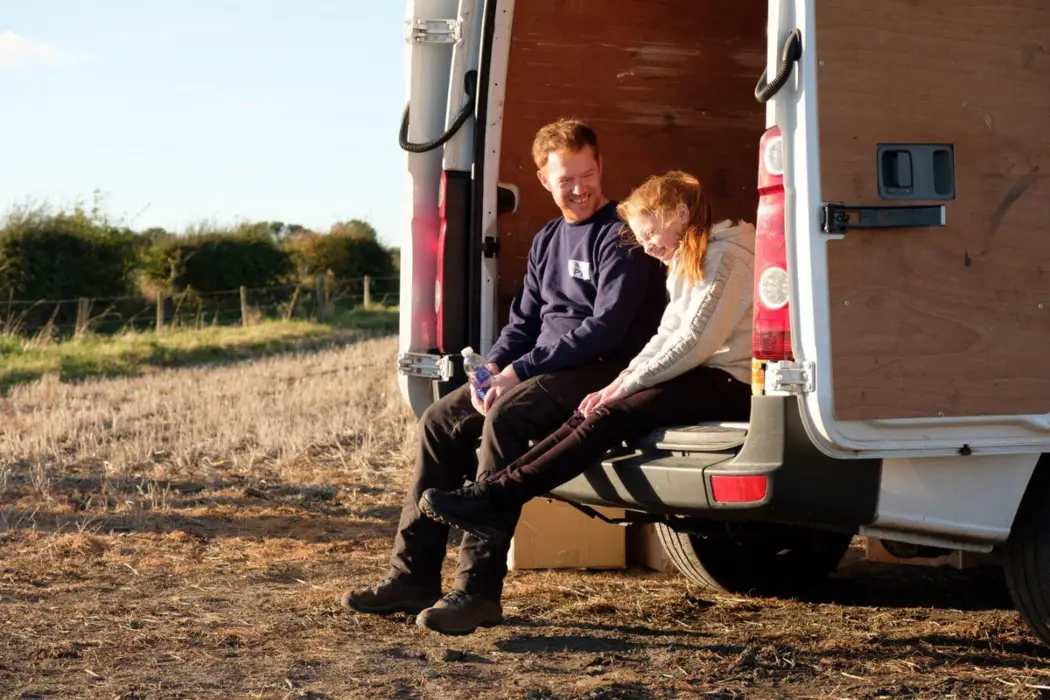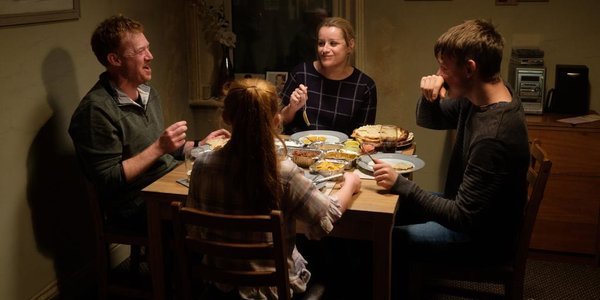SORRY WE MISSED YOU: Straight To The Point

English director Ken Loach has made a career tackling social issues, most recently setting his sights on the UK’s benefits system in I, Daniel Blake, and his latest is no different. In Sorry We Missed You, Loach takes aim at the gig economy and zero-hour contracts, and the result is sobering and heartfelt, if a little blunt at times. What the director really zeroes in on, as he has done many times before, is the hopelessness felt by his characters, the sense that nothing they can do can break them out of the grueling cycle they’ve been put in.
It’s a hopelessness felt by many across the UK, to whom zero-hour contracts are offered with the promise of independence and the notion that “you don’t work for us, you work with us.” But what’s quickly learned in these situations is how this line of thinking is used to restrict even the most basic of rights from workers. This is the case for Ricky Turner (Kris Hitchen), who takes a job as a delivery driver, high on the idea of developing his own franchise. But before that can happen, he must first buy a van, causing wife Abbie (Debbie Honeywood) to have to sell her car and take the bus to the various homes she visits as a care worker.
Hopelessness
This is only the first of many instances where the circumstances of Ricky’s employment begins to weigh on his home life, as children Seb (Rhys Stone) and Lisa Jane (Katie Proctor) see less and less of their parents. Loach and co-writer Paul Laverty get right to the heart of this family’s conflicts — from Seb’s dwindling interest in school, to Lisa Jane’s anxieties over her family breaking apart, to Abbie’s struggles getting to and from work, and to provide a genuine level of care for her patients in the limited time given. Time is the key here for all parties, whether it’s the increasingly ludicrous delivery windows Ricky is expected to hit or the fact that time appears to be running out for Seb to turn his life around.

A missed day of school here, a run-in with the law there, each taking Ricky away from his work and costing him a fortune in fines. When the time comes to confront these issues, there’s little more than resentment left between father and son, although it’s to their credit that Loach and Laverty paint neither as outright villains and take time to establish that this is still a family that loves one another.
An extended sequence of the Turners spending the night together, discussing the finer points of vindaloos and driving Abbie to a client shows what this family can be when the weight of the world isn’t pushing them further and further down. A subplot involving Seb and his friends feels a tad undercooked, especially in the way it’s so quickly disposed of, but otherwise, this family unit is drawn with great care.

As Sorry We Missed You nears its end, Ricky’s problems start to snowball and it’s in this stretch that the film loses some steam. Misery and misfortune are piled upon Ricky in a way that allows the film’s message to overpower the drama. One scene in particular, where Abbie argues with her husband’s boss, is a frustratingly blunt spelling out of everything the film had already told us via cinematic language. Given the potency of the subject matter, you might be inclined to forgive Loach this indulgence, but it’s disappointing nonetheless that he takes such a direct approach.
Sorry We Missed You: Conclusion
But just when you think you know where it’s going, the film undercuts expectations with a quietly devastating ending that avoids cliche and focusses on the reality of Ricky’s situation. It’s a sobering mirror held up to a country leaving so many behind, reminding us that Loach is a one of a kind filmmaker — one who’s adept at capturing the human emotion at the core of social issues. Sorry We Missed You is not without faults, but it is a vital look at the hardships faced day in, day out by families all over the UK.
Sorry We Missed You was released in theaters in the UK on November 1, 2019 and will be released in theaters in the US on March 6, 2020. For all international release dates, see here.
Does content like this matter to you?
Become a Member and support film journalism. Unlock access to all of Film Inquiry`s great articles. Join a community of like-minded readers who are passionate about cinema - get access to our private members Network, give back to independent filmmakers, and more.













